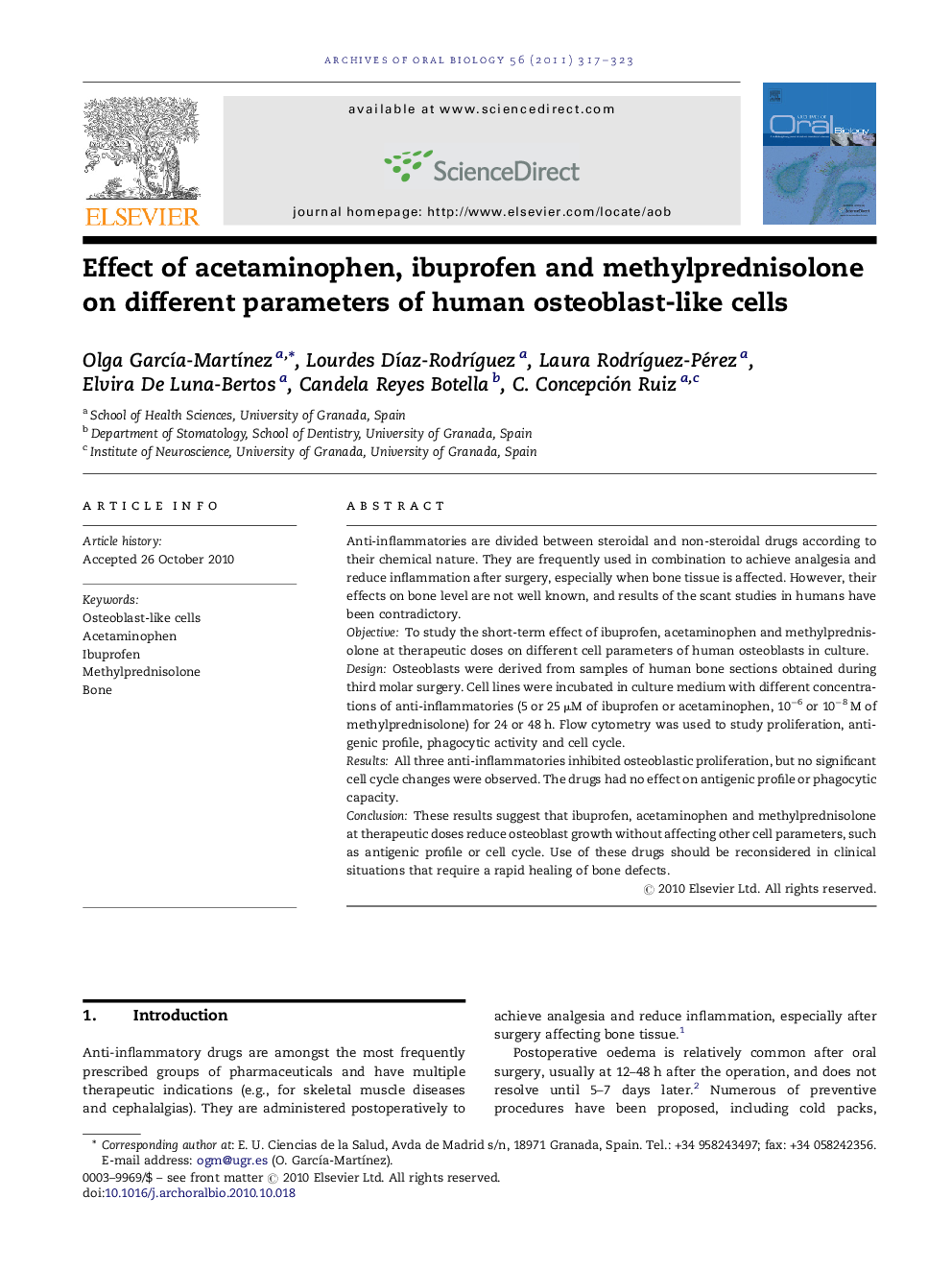| Article ID | Journal | Published Year | Pages | File Type |
|---|---|---|---|---|
| 6051825 | Archives of Oral Biology | 2011 | 7 Pages |
Anti-inflammatories are divided between steroidal and non-steroidal drugs according to their chemical nature. They are frequently used in combination to achieve analgesia and reduce inflammation after surgery, especially when bone tissue is affected. However, their effects on bone level are not well known, and results of the scant studies in humans have been contradictory.ObjectiveTo study the short-term effect of ibuprofen, acetaminophen and methylprednisolone at therapeutic doses on different cell parameters of human osteoblasts in culture.DesignOsteoblasts were derived from samples of human bone sections obtained during third molar surgery. Cell lines were incubated in culture medium with different concentrations of anti-inflammatories (5 or 25 μM of ibuprofen or acetaminophen, 10â6 or 10â8 M of methylprednisolone) for 24 or 48 h. Flow cytometry was used to study proliferation, antigenic profile, phagocytic activity and cell cycle.ResultsAll three anti-inflammatories inhibited osteoblastic proliferation, but no significant cell cycle changes were observed. The drugs had no effect on antigenic profile or phagocytic capacity.ConclusionThese results suggest that ibuprofen, acetaminophen and methylprednisolone at therapeutic doses reduce osteoblast growth without affecting other cell parameters, such as antigenic profile or cell cycle. Use of these drugs should be reconsidered in clinical situations that require a rapid healing of bone defects.
